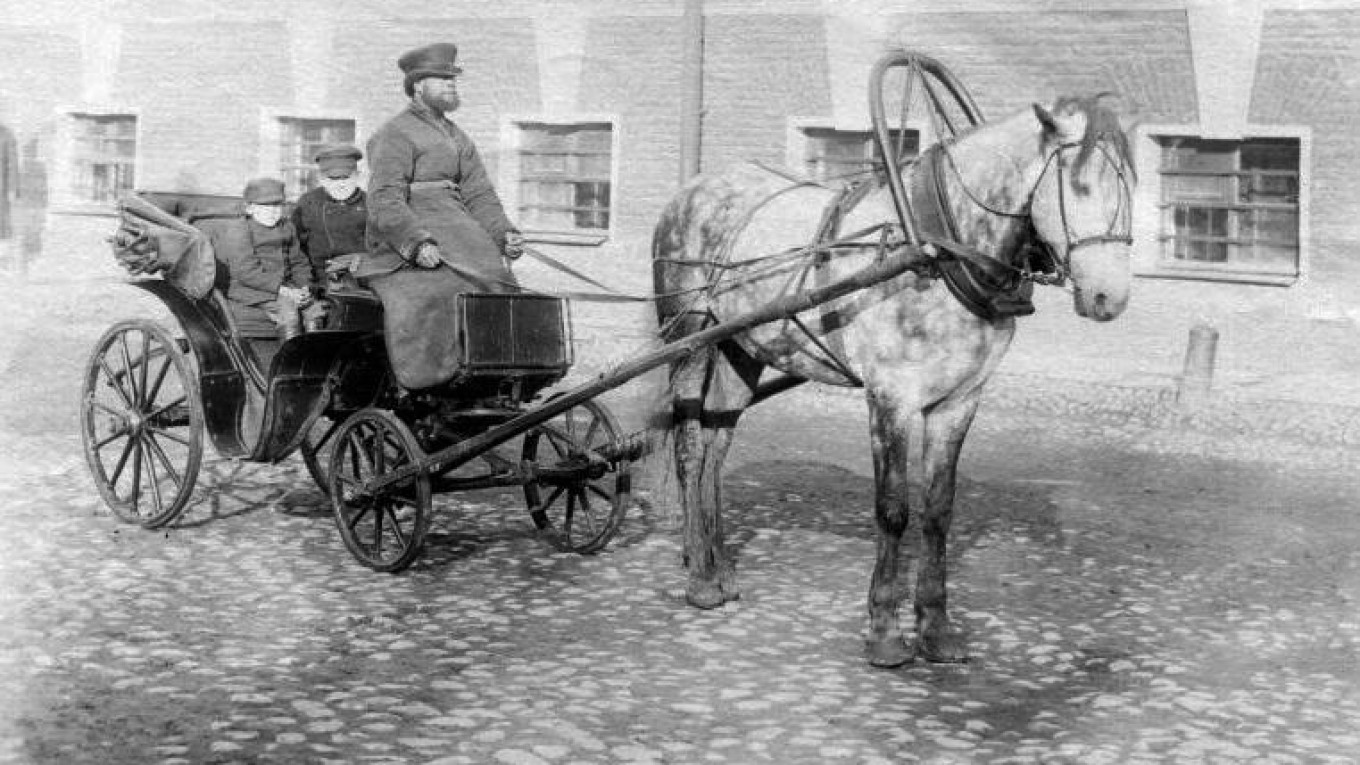The Moscow Times and Project1917 bring you the next installment of the most compelling stories of 1917. In the sixth episode of our series which takes place one hundred years ago this week, an avant-garde manifesto is launched, the founder of the Soviet secret police breaks out of prison, balalaikas sounds great. See previous episodes here.
Feb. 28:
Sergei Makovsky, editor-in-chief of the intellectual Apollon magazine in the 1910s, retells a zingy episode he lived through just before the first of Russia’s two 1917 revolutions.
The melting snow on Ivanovskaya Street has turned into thick, dirty slush. As usual, I left the house about eleven and hailed a cab. Up drove up “Vanka”, an old man with a gray, matted beard who looks as if he is grown over with moss.
We had just agreed on the price and he was about to open the sledge for me when from the left, from the direction of Razyezzhaya Street, three characters came striding up to us dressed in leather, half-educated types by the look of them (clearly they were workers). They came up and proceeded to cut through the reins right next to the horse’s nose with a large pair of shears (the kind used to prune trees). They did this without a word.
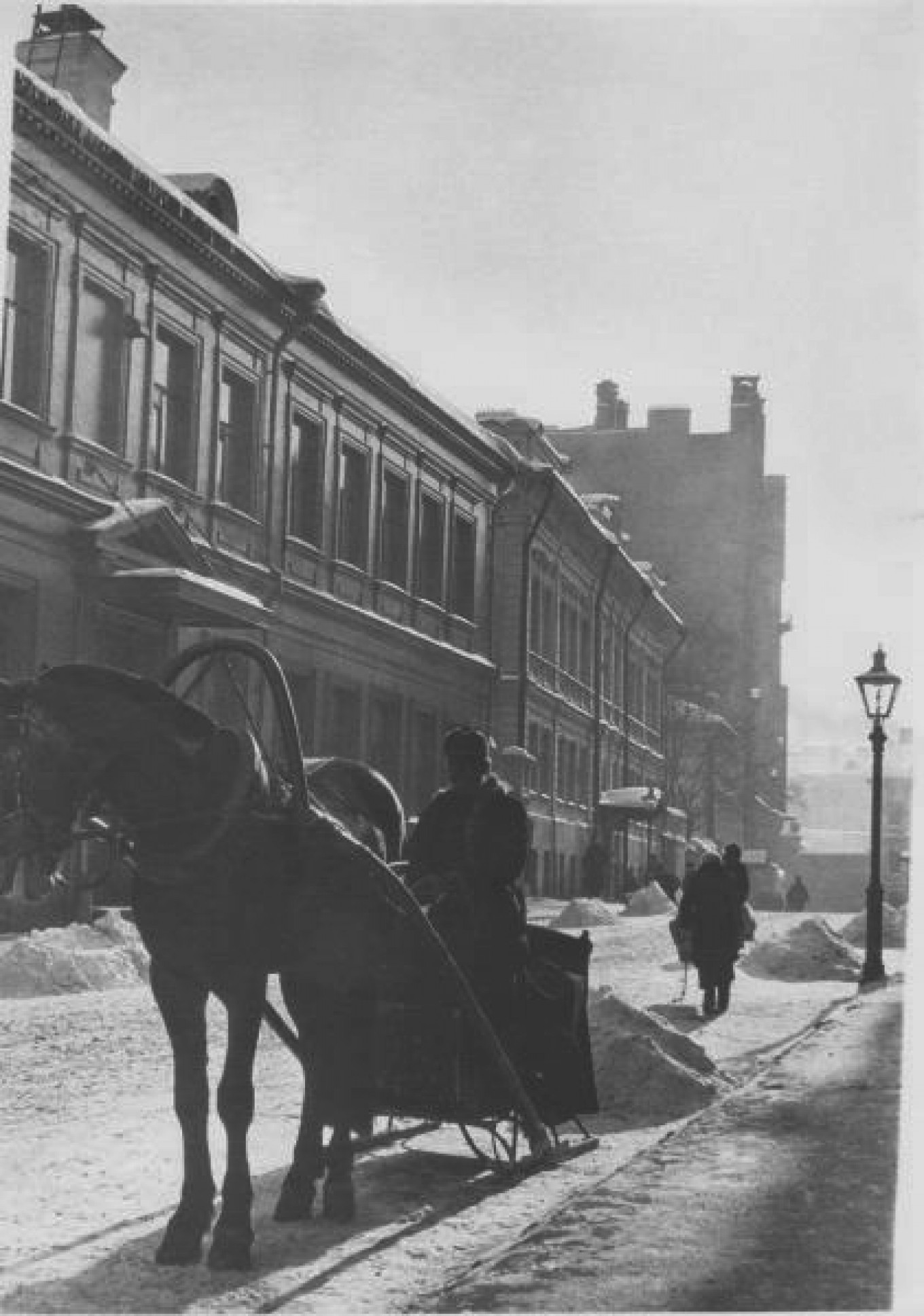
My driver, also without saying a word, but with a meaningful glance at the strikers, got out of the sledge, pulling his long heavy coat after him, stood in the road next to the sledge and sank to his knees. Then he took off his fur hat, made the sign of the cross with an elaborate flourish, and bent his forehead to the ground, right into the slush. Straightening up again, but still on his knees, he intoned in an unexpectedly loud and sonorous voice, given his wretched appearance:
“Thank you, brothers! It has begun. God have mercy!”
And then, without a glance at any of us, he trotted away on his horse. And I went home.
I felt very clearly that “it” really had “begun,” and that it would not end well.
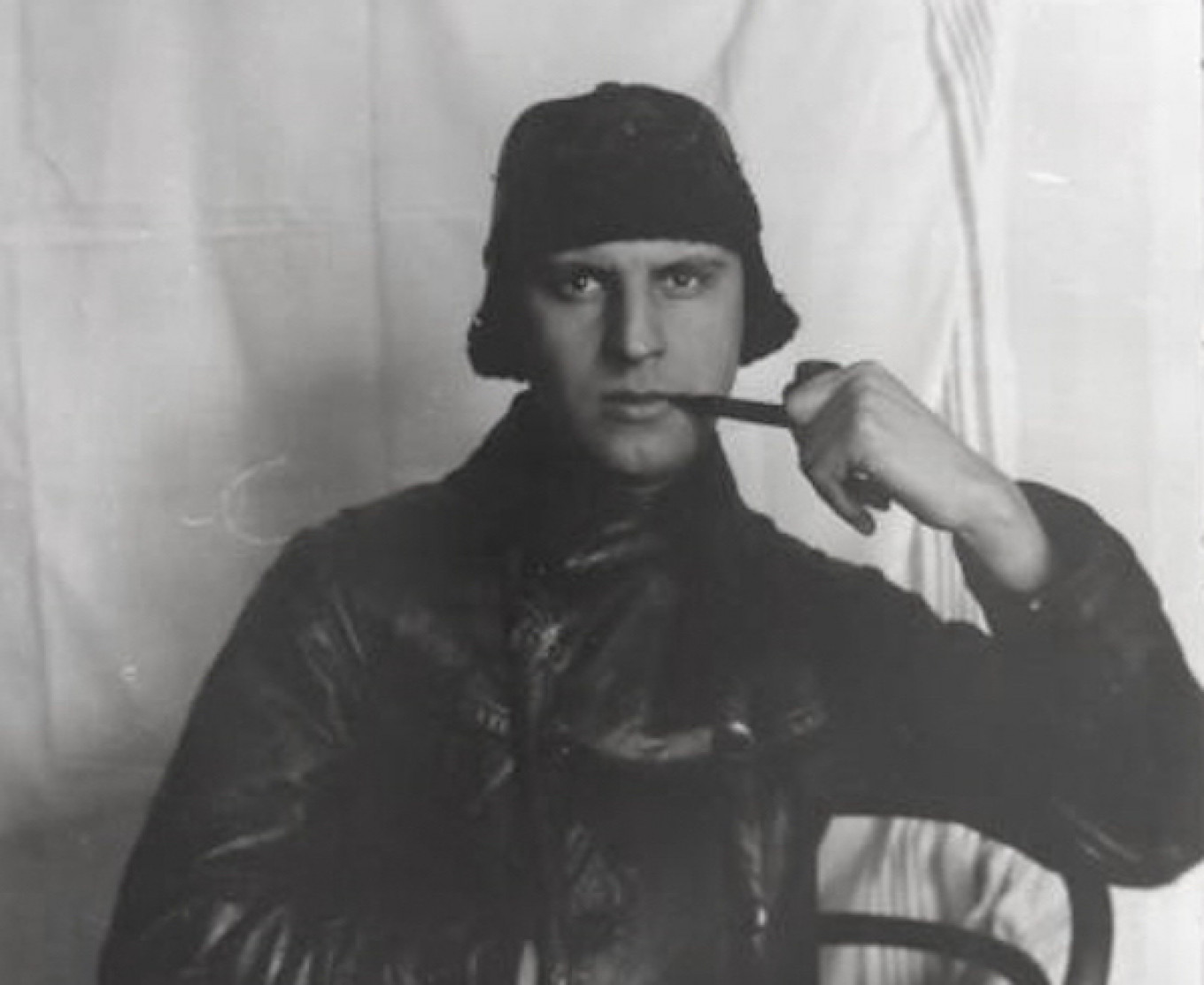
March 2:
World famous photographer Alexander Rodchenko was virtually unknown before 1917. Ten days before the Revolution began, Rodchenko composed a manifesto on what was going to become the distinctive, avant-garde, revolutionary art of 1920s.
Art's value is determined by its capacity to stride unceasingly ahead. Its most treasured principles must be:
Novelty,
Inventiveness,
Inquisitiveness,
Analysis,
Rebellion
... and daring.
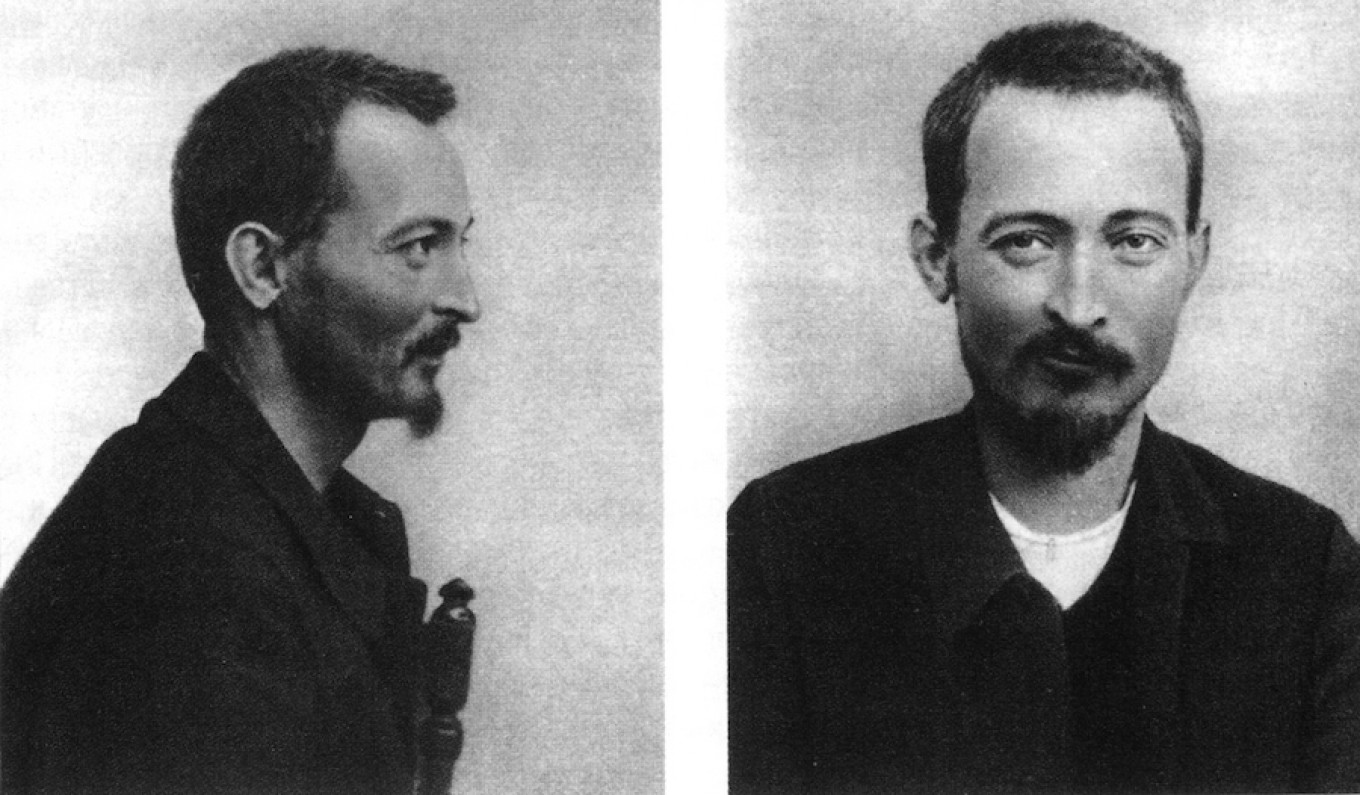
March 4:
Every Russian knows the name of Felix Dzerzhinsky, one of the cruelest Soviet-era figures. The statue of him in Moscow was considered the main symbol of the USSR’s oppressive system and was the first to be taken down during the fall of the Soviet union.
But in early 1917, he was still in jail, unaware that he would be liberated by the Revolution. Here is a touching letter he wrote to his wife and their young son:
My dearest Zosya,
Here, in prison I can’t keep a postcard, even from our young son. I was hoping they would give me at least one day to look at it. Perhaps even more. I have Yasik’s postcard before me, written by him, and his words, thoughts, and feelings make me smile.
How happy I am with you, my dear, I would release bubbles in the air, so that they, colorful and beautiful, floated slowly, and we would follow them, with our heads craned and blowing so they didn’t fall.
And I think when you grow up, you'll be big and strong, we will teach ourselves how to fly a plane. We’ll fly like birds, to the high mountains, to the clouds in the sky, and the towns and villages, fields and forests, valleys and rivers, lakes and seas—the whole beautiful world—will be below us. And the sun will be above us, and we'll fly.
My Yasik, don’t worry that I'm no longer with you. It can’t be otherwise. I love you, my sweetheart. You are my joy though I can only see you in my thoughts and dreams. You’re my entire happiness. Be good, kind, cheerful and healthy. Always be happy for mommy, me, and the people, so that when you grow up, work, and enjoy your work and please others, and be an example to them.
I kiss you and hug you tightly, my sonny boy.
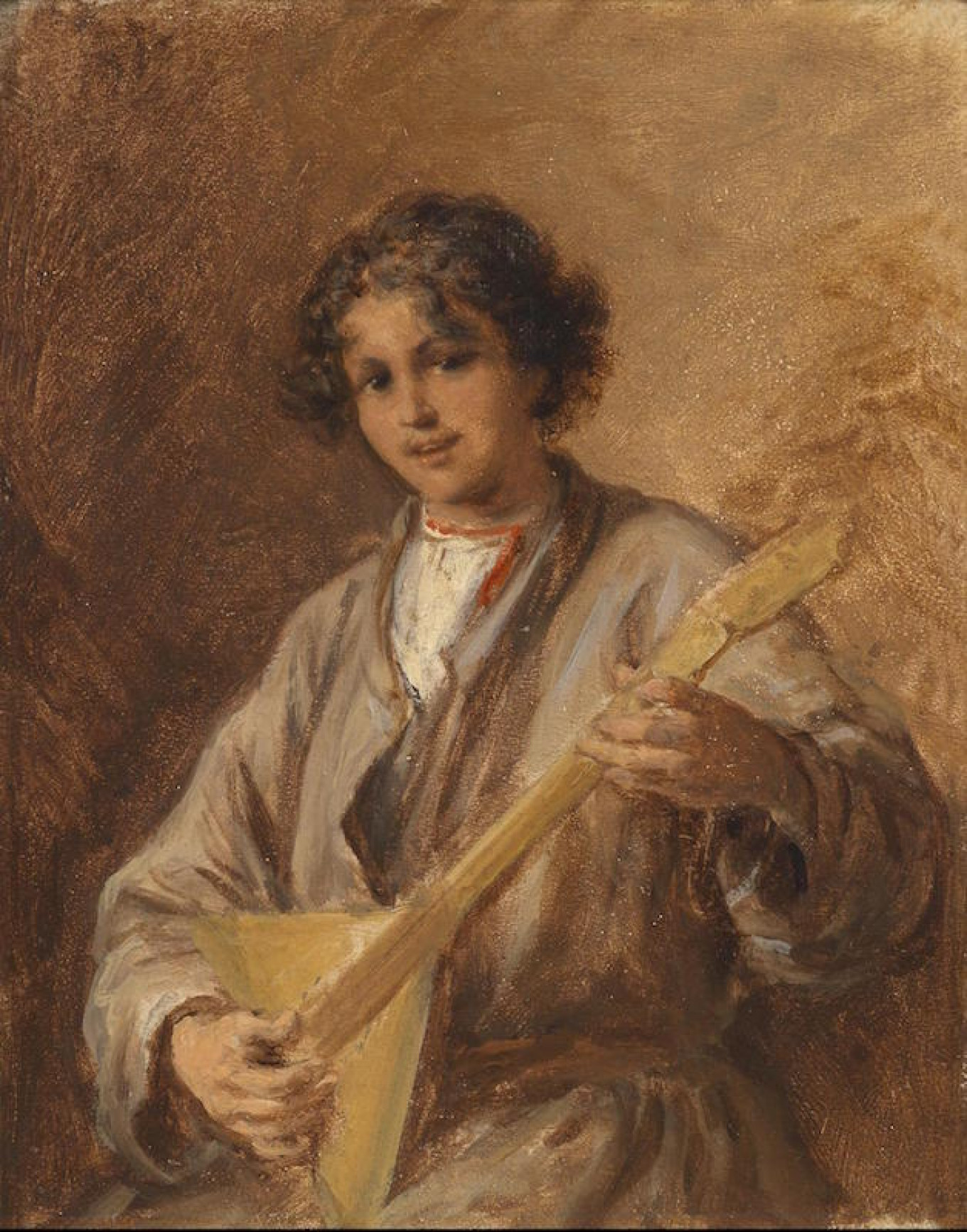
March 5:
As a poet, Rurik Ivanov is relatively unknown even in Russia. Nethertheless, his diary is one of the most personal, honest and moving documents of the early 20th century.
I cannot and will not believe that in this world, with all its wealth, with all our intelligence and with so many kind hearts, we cannot arrange our affairs in such a way that half-starving (truthfully starving!) Chinese were not forced to wander the streets in summer clothes selling ridiculous and entirely unwanted paper flowers.
Heavens above! What can possibly stand in our way?
You are a tsar's brother, Grand duke Michael Alexandrovich. Revolution is coming in a week. What should you do? Probably, listen to some good old balalaika. One should always find time for quality music:
After lunch someone picked up a balalaika and the choir of the 1st Railway Regiment of His Majesty burst into song – they sang and played remarkably well.
A Message from The Moscow Times:
Dear readers,
We are facing unprecedented challenges. Russia's Prosecutor General's Office has designated The Moscow Times as an "undesirable" organization, criminalizing our work and putting our staff at risk of prosecution. This follows our earlier unjust labeling as a "foreign agent."
These actions are direct attempts to silence independent journalism in Russia. The authorities claim our work "discredits the decisions of the Russian leadership." We see things differently: we strive to provide accurate, unbiased reporting on Russia.
We, the journalists of The Moscow Times, refuse to be silenced. But to continue our work, we need your help.
Your support, no matter how small, makes a world of difference. If you can, please support us monthly starting from just $2. It's quick to set up, and every contribution makes a significant impact.
By supporting The Moscow Times, you're defending open, independent journalism in the face of repression. Thank you for standing with us.
Remind me later.


